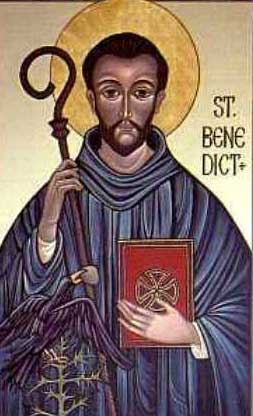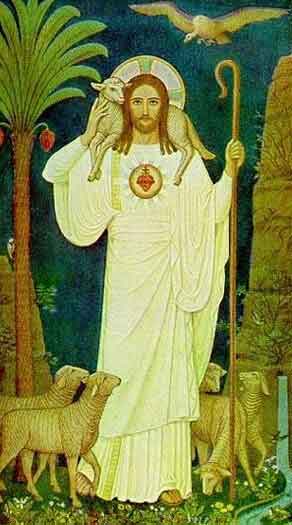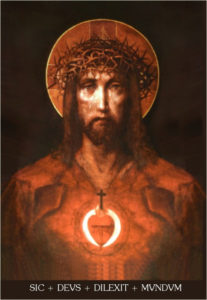Novena to St. Benedict Day 2
Podcast: Play in new window | Download (Duration: 2:44 — 1.9MB) | Embed
Subscribe: Apple Podcasts | Spotify | Amazon Music | Android | Pandora | iHeartRadio | JioSaavn | Podchaser | Gaana | Podcast Index | Email | TuneIn | Deezer | Anghami | RSS | More

In the Holy Rule, St. Benedict you have said:
What, dearest brothers, can be sweeter to us than this voice of the Lord inviting us? See, in His loving kindness, the Lord shows us the way of life. Therefore, having our loins girt with faith and the performance of good works, let us walk His ways under the guidance of the Gospel, that we may be found worthy of seeing Him who has called us to His kingdom (cf 1 Thes 2:12).
If we desire to dwell in the tabernacle of His kingdom, we cannot reach it in any way, unless we run to it by good works. But let us ask the Lord with the Prophet, saying to Him: “Lord, who shall dwell in Your tabernacle, or who shall rest in Your holy hill” (Ps 14[15]:1)? . (Holy Rule 1)
Glorious Saint Benedict,
sublime model of virtue, pure vessel of God’s grace!
Behold me humbly kneeling at your feet.
I implore you in your loving kindness to pray for me before the throne of God.
To you, I have recourse in the dangers that daily surround me.
Shield me against my selfishness and my indifference to God and to my neighbor.
Inspire me to imitate you in all things.
May your blessing be with me always, so that I may see and serve Christ in others and work for His kingdom.
Graciously obtain for me from God those favors and graces which I need so much in the trials, miseries, and afflictions of life.
Your heart was always full of love, compassion, and mercy toward those who were afflicted or troubled in any way.
You never dismissed without consolation and assistance anyone who had recourse to you.
I, therefore, invoke your powerful intercession, confident in the hope that you will hear my prayers and obtain for me the special grace and favor I earnestly implore.
{mention your petition}
Help me, great Saint Benedict, to live and die as a faithful child of God, to run in the sweetness of His loving will, and to attain the eternal happiness of heaven.
Amen.
O Holy Father, St. Benedict, pray for us.





 DAY SIX
DAY SIX
